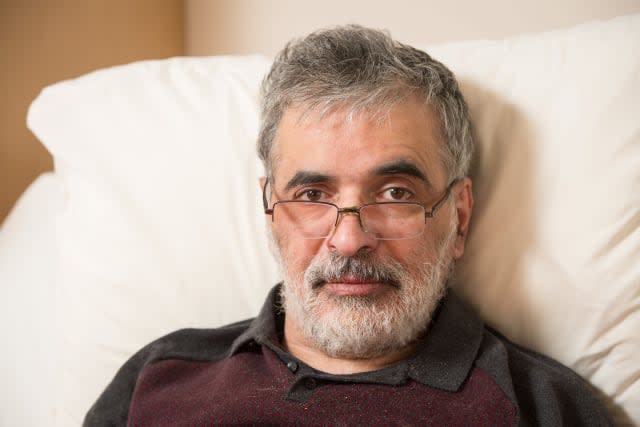Man with incurable disease "desperate" for assisted suicide legal battle to be heard

A man suffering from an incurable disease who is fighting a legal battle for a "dignified" death is desperate for his case to be heard as soon as possible, leading judges have heard.
Sir Brian Leveson and Mrs Justice Whipple were told during a hearing at the High Court on Tuesday that the 54-year-old former property developer recently wrote to his lawyers saying there "should be a way out of this misery and torture".
Paul Bowen QC, representing the man, who can only be referred as Omid T, said his judicial review claim was against the blanket ban on assisted suicide "which prevents him from obtaining the assistance he needs to end his life".
He told the judges at a preliminary hearing in London: "The claimant is desperate for that claim to be heard as soon as possible."
Omid's action is against what he describes as the UK's "cruel and unjust" law on assisted dying.
His battle is for a change which would allow him and others who have been diagnosed with an incurable illness to "safely end our lives".
'#AssistedDying: A right to autonomy and dignity' @SaimoChahal for @lawsocgazettehttps://t.co/jjSbaZOaPM
-- Bindmans LLP (@BindmansLLP) November 8, 2017
The judges heard he is now in the advanced stages of multiple system atrophy (MSA) following a diagnosis in 2014.
Mr Bowen described it as a "rare and devastating neurological disorder". Omid has effectively been bedbound for the last two years.
He wishes to end his life but his condition means he is unable to do so without help.
The QC said Omid's prognosis "is a further gradual deterioration", with death likely within six months to two years.
Mr Bowen told the judges: "Due to the unbearable suffering caused by his deteriorating physical condition, which cannot be cured or alleviated, life has becoming intolerable to him."

On his CrowdJustice page, where he is raising funds for the legal action, Omid has written: "The law on assisted dying in the UK is cruel and unjust.
"It stops me, and many like me, from having a safe and painless death at home in England."
The judges are being asked to rule on a number of issues relating to the future progress of the case.


